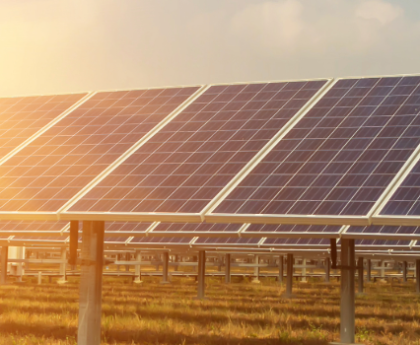Germany is seeing a big jump in the number of balcony solar panels, showing that like the rest of Europe, it’s moving towards using more renewable energy. The government has made some smart changes to make it easier for people to get these eco-friendly tech options in their homes.
What Are Balcony Solar Panels?
The latest numbers from the Federal Network Agency show a spike in balcony solar panel systems in Germany; they’ve got over 400,000 up and running. A lot of this growth comes from a new rule called Solar Package I, which started in January 2024. It cut through a lot of red tape that was slowing people down from getting these solar setups before.
The Good Stuff About Balcony Solar Panels
- Save on Bills – People with balcony solar panels are saving about 228 euros each year on what they pay for power.
- Better for the Planet – These solar setups make a pretty big dent in carbon pollution. They’ve been helping Germany’s cities stay cleaner.
- Renewable Energy – Balcony solar panels help cut down on carbon emissions by taking energy straight from our homes.
- Accessibility – It’s easy for anyone to install this tech, even if you’re not a tech savvy person.
Installation and Incentives
Setting up balcony solar panels has become easy, getting renters and homeowners on board with this eco friendly option. You generally need to add your system to a national list, and if you’re renting, you’ll have to get an OK from your landlord something that’s becoming less of a hassle thanks to rules that look out for tenants. Plus, cash benefits like the Berlin Senate’s 500 euro handout make these solar setups even more tempting.
Comparative Analysis Across Europe
In Europe, Germany is ahead in using balcony solar units, but other countries are also getting into it, just not all at the same pace. Countries such as Austria, France, Italy, Poland, and Luxembourg have rolled out policies that support the use of solar energy on balconies. On the flip side, Belgium has some limits in place due to worries about keeping the electric grid stable. This just goes to show how rules can vary widely from one European country to another.
Technical Details and Innovations
Balcony solar setups usually consist of a couple of photovoltaic panels that you can plug right into your home’s electrical outlets. They make around 10% of what you’d get from big rooftop solar systems. But there’ve been some cool new developments aimed at making these little systems better both in how well they convert sunlight into electricity and how they store that power for later. That means they could start covering more of what you need for your house before long.
Market Impact and Future Prospects
The demand for balcony solar panels is on the rise, showing a lean towards energy production that’s more spread out and in the hands of regular folks. This idea is especially good for cities where there’s not a lot of room for big solar projects. The market is quite literally shining bright for these compact power producers as more people look to them as a way to juice up their homes with clean energy.
Looking to the future, we expect that better solar tech and helpful policies will keep pushing people to use more solar energy, making our cities greener as a result.
Challenges and Considerations
Sure, installing solar panels on balconies is great, but there are some things to think about. You have to make sure your balcony is strong enough, that it gets good sun, and that your electrical system can actually work with these plug and play solar gadgets. If you take the time to check everything out first, you’ll get the most bang for your buck and keep things safe.
Conclusion
In Germany, balcony solar panels are really taking off, showing us all how clever green solutions can make a big splash. With cutting-edge tech and forward-thinking policies giving them a boost. These pintsized power plants are paving the way for using clean energy in big city living settings across Europe.
Contact Information
If you need more information, go to the Federal Network Agency’s website. You can also talk to local solar energy advisors for help.
This post was originally published on 3rd party site mentioned in the title of this site




